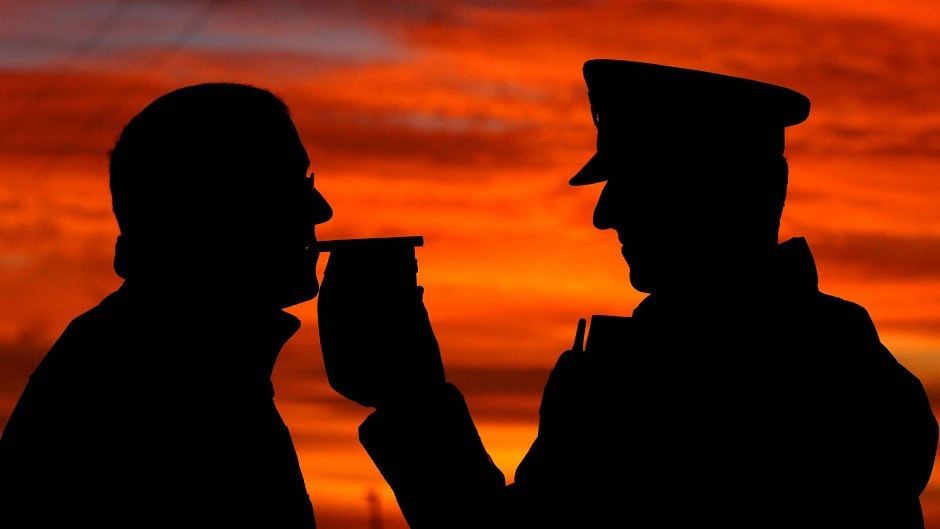Scots are being encouraged to take public transport or get a lift to work if they have been drinking the night before.
Justice Secretary Kenny MacAskill said it was the only way people could ensure they were not over the new drink-drive limit which will be introduced on December 5, if it wins approval in parliament granted today.
He added that the Scottish Government and the emergency services had a zero-tolerance policy because they were determined to reduce the number of road fatalities and casualties.
Mr MacAskill helped launch a public awareness campaign in Edinburgh yesterday to publicise the new drink-drive limit, which will be 50mg per 100ml of blood rather than the current 80mg.
An average of 20 people die on Scotland’s roads each year as a result of drink-driving-related collisions.
Last year, a further 90 were seriously injured and 340 were slightly injured in such crashes.
Christopher Littlejohn, a consultant in public health at NHS Grampian, said a person’s liver removed about one unit of alcohol per hour, which means it would take about nine hours to detoxify after drinking a bottle of wine.
Asked what time in the evening a person should stop drinking if they were driving at 7am the next morning to avoid being over the limit, Mr MacAskill said: “I cannot advise on that because it depends on the individual and their age and height.
“I think what our advice would be is they should make arrangements about how they are going to get to their work the following day.
“If you are going to have a significant amount of alcohol then make arrangements to get a lift, take a bus or take the train.
“We want to make sure nobody is injured on the road by people driving impaired through alcohol and we do not want to see people lose their licence because they have been caught either at the event or in the morning.”
Chief Superintendent Iain Murray, head of roads policing for Police Scotland, said there was “no safe limit” and his officers would be operating more road checks across the north and north-east over the festival season.
“Even at the new limit you are three times more likely to die in a crash than if you had taken no alcohol,” he added.
“It is clear, when it comes to drinking and driving, that the simple ‘the best advice is none’ message is the right one.”
